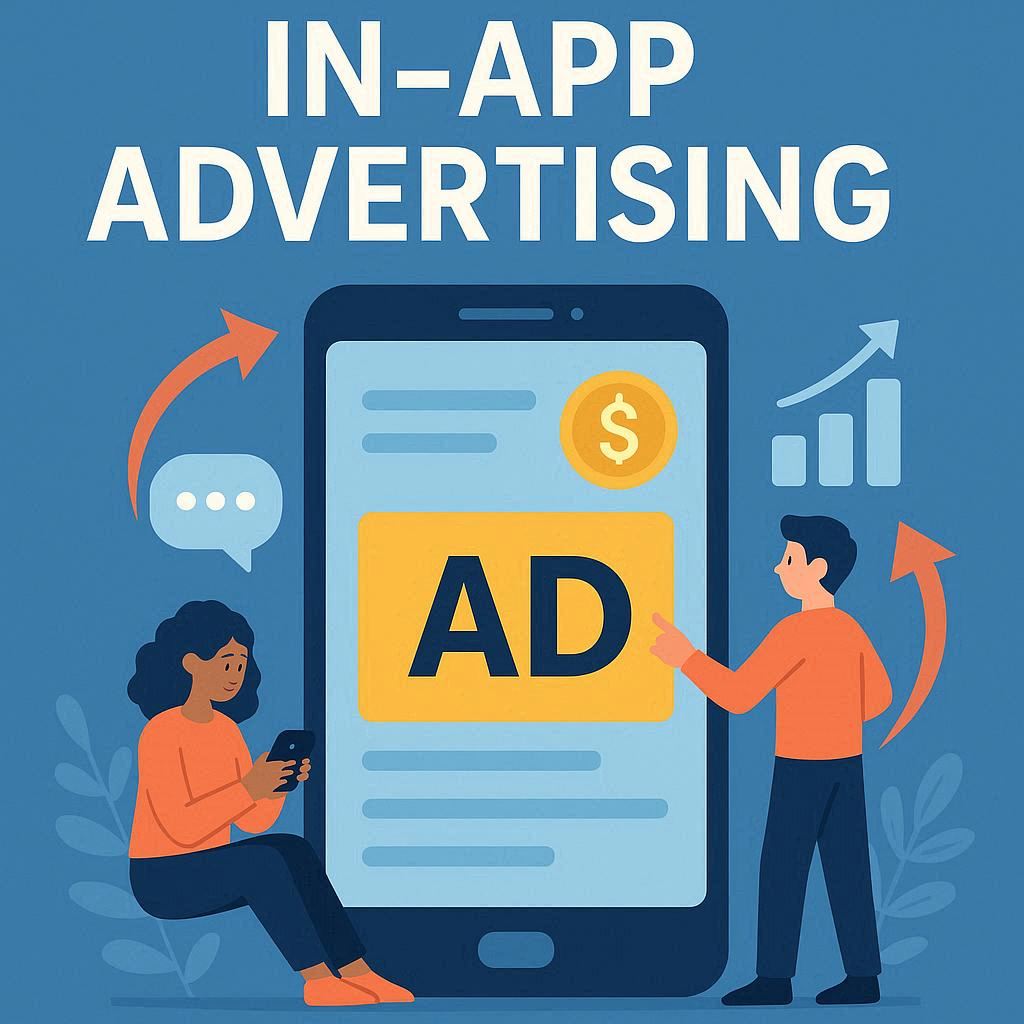- What is Affiliate Marketing for Apps?
- What are the Benefits of Affiliate Marketing for Apps?
- How Does Affiliate Marketing for Apps Work?
- Strategies for the Success of Affiliate Marketing for Apps
- Key Takeaways
In the highly competitive app market, developers are constantly looking for creative strategies to increase their revenue. One of the most effective strategies for user acquisition is Affiliate Marketing for apps.
It is an advertising channel that aims at the acquisition of mobile users for a company’s mobile app. Affiliate marketing has become one of the main tools for paid user acquisition.
Affiliate marketing for apps refers to partnerships between app developers and affiliates who help promote the app to increase installs. Affiliate partners are third-party publishers who have their own established networks and channels for promoting apps.
By utilizing external partnerships, apps can effectively scale user acquisition beyond their own marketing efforts.
It is a performance-based model where publishers are rewarded for generating installs and delivering valuable post-install results. It guarantees that advertisers only pay for results, making it a cost-effective marketing approach.
Affiliate marketing partnerships are a win-win for both advertisers and publishers: advertisers can expand their reach to new audiences and potentially grow their customer base, while publishers have the opportunity to monetize their audiences.
As the mobile app industry continues to grow, the potential for earning through mobile app affiliate programs is also increasing.
Investing in affiliate marketing for apps will help your app grow because affiliate marketing relationships that are effective can easily increase your earnings. Affiliate marketing for apps is gaining more and more popularity for a reason.
Here are some of the most significant benefits of joining them include:
- Reach extended audience: affiliates give you the chance to diversify into various platforms, reaching potential users that you might not have been able to target effectively on your own. These partnerships give your brand a bigger online presence.
- Cost-Effective Marketing: affiliate marketing helps advertisers save money in their app install campaigns. The most common payout model is CPA (Cost-Per-Action), where advertisers pay publishers each time a new user performs a specific action within the app. This means that advertisers pay only for users who generate in-app revenues. They want to acquire new users who take valuable actions. For this reason, it is easier for affiliates to generate a high return on investment (ROI).
- Performance monitoring: affiliate programs provide detailed analytics tools to track performance. These tools allow you to see which affiliates are generating sales, helping you optimize your strategies and improve your overall marketing effectiveness.
- App campaign optimization: affiliate marketing for apps has the ability to optimize your campaign for better key performance indicators (KPIs). Affiliates are able to optimize app install campaigns not only to attract new users, but also to acquire those who are more likely to generate high LTV, drive in-app revenues, and boost your ROAS.
However, mobile marketing also has its drawbacks. For example, a potential downside to consider is the low transparency of affiliate networks, because app developers do not know where affiliates will show their app ads, and this can create reputational risks. Another disadvantage is that affiliate partners' technology tends to be less strong compared to other partners, in terms of targeting and optimization capabilities.
Affiliate marketing helps businesses attract potential app users while allowing service providers to earn revenue through their lead generation capabilities.
App developers look for affiliate partners, pay them commission based on various monetization models. This involves analyzing data related to traffic, impressions, downloads, installs, and other relevant metrics.
The most significant components in the ecosystem of affiliate marketing are:
Advertisers:
They are the entity who wants to promote the app. Their goal is to generate app traffic and installations, and convert these into monetary profits. App developers pay affiliates a percentage of the profits generated from their efforts. App owners have the ultimate aim of attracting potential users to install their app, growing their app’s user base.
Affiliate partners:
They connect Advertisers with Publishers looking to sell mobile ad inventory.
Publishers:
They are the affiliate marketing partners, namely the service providers. Their job is to promote apps, bringing traffic and app downloads, for the app owners. They use various platforms such as social media, websites, and applications to promote the app, showing it to a wide range of potential users. Marketers drive revenue or traffic and earn commission based on the sales or profits generated.

It takes time to build up the traffic that will eventually generate income. Your approach will determine the success of affiliate marketing.
If you want to promote your app successfully, follow these strategies:
- Identify target audience: segment it according to its characteristics and value. Understanding your app’s user base will help you in customizing the campaign. Identify their preferences and behaviors to ensure that the affiliates align with their interests. For example, if you're aiming to attract social media traffic, search for affiliate partners who specialize in social media marketing and influencer marketing strategies.
- Choose the right affiliates: it is important selecting the best affiliate marketing, as the success of your campaign will largely depend on their effectiveness. Choose affiliate programs that offer services relevant to your audience and are right for your app based on outreach strategy (how they acquire traffic), traffic volume, commission rates and brand identity.
- Analyze the performance: implement tracking mechanisms to monitor the results of your affiliate marketing campaign. You can study the success of the campaign analyzing metrics such as clicks, return on investment (ROI), conversions, and revenue generated. These metrics are useful to determine what works best and optimize your strategies accordingly.
- Optimize for conversions: continuously refine your affiliate marketing strategies using performance data and user feedback. Test various promotional tactics, messaging, and placements to boost conversion rates and maximize revenue.
- Build a solid partnership: create a solid rapport with your affiliate partners by maintaining regular communication, exchanging feedback, and collaborating on effective promotional strategies. Working together can lead to better pricing, higher commissions, and increased long-term revenue for both advertisers and publishers.
The mobile app industry is huge and expanding every day, and partnering with the right affiliate marketing for apps can help you advance in this landscape.
Implementing an affiliate marketing program for your app can greatly strengthen your marketing strategy and drive revenue growth. By leveraging the power of affiliates, you not only expand your reach but also build credibility and trust among potential users.
Affiliates offer a variety of benefits, including high conversion rates, the reach of wide audiences, and optimization of the whole app campaign.
Find your relevant affiliates to attract more app traffic and make your app grow. App marketers can utilize mobile affiliates as a scalable source of high-quality user growth and revenue. With the right approach, affiliates can drive substantial performance improvements for app developers.
Affiliate marketing is a powerful channel of user acquisition, a proven advertising strategy for promoting your app that is gaining popularity and effectively increasing profits for app owners.




















